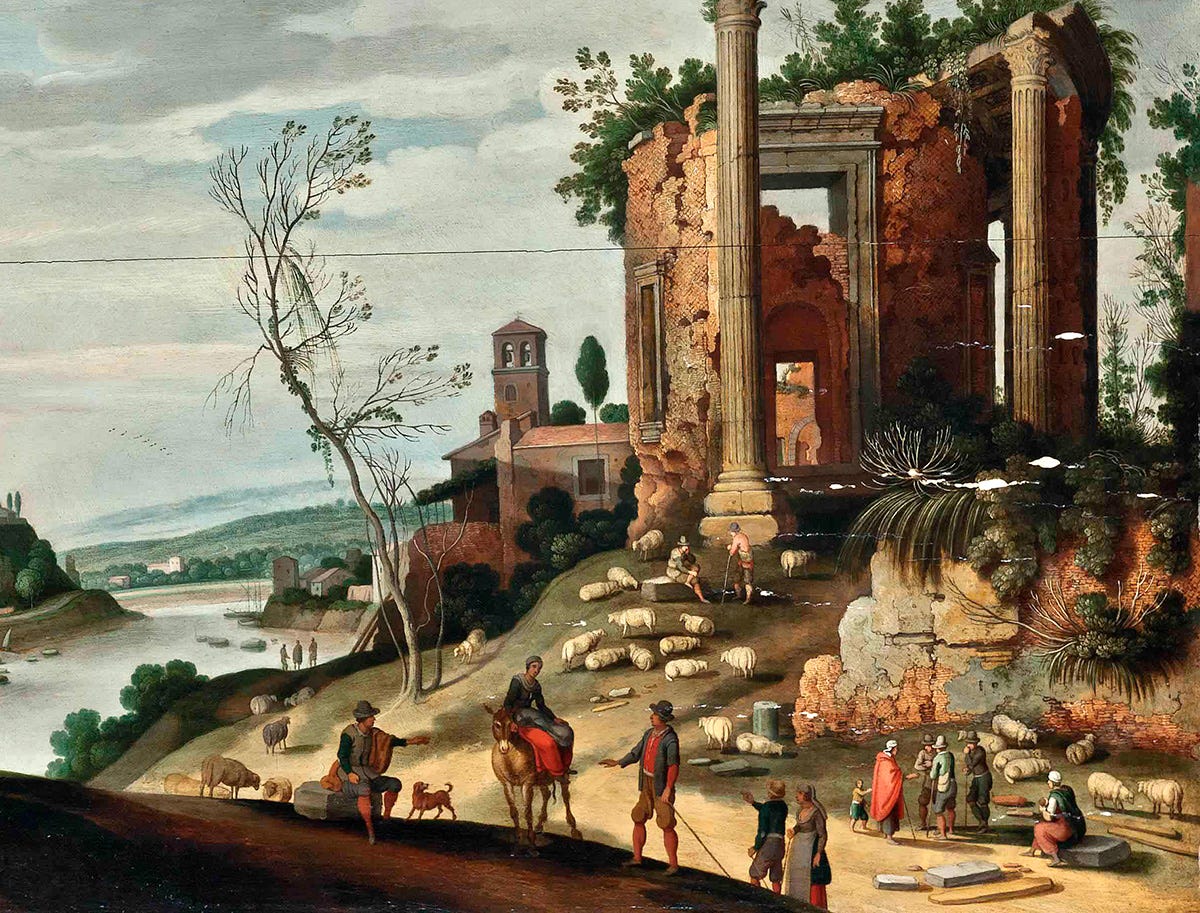Do We Need the University?
Speaking as a non-academic: Yes

For those who enjoy my rantings at UnHerd magazine, I recently wrote about the University and the challenges facing intellectual life today. My own experience of the University is limited – I’m pretty under-qualified, to be frank – but since I care about the humanities and about learning in general, I feel I have a stake in its future. The University is not the only setting where these things can be sustained, but it’s a very important one. I previously argued, vis-à-vis the decline of reading, that literary culture can survive the current onslaught of techno-barbarism; this piece could serve as a coda to that argument, addressing the institutional side of things.
An extract from the essay:
Even those without political animus may agree that it’s past time to slim down the University, an unaffordable relic in an age when so much knowledge is freely available. A degree like mine, English Literature, now means incurring significant debts in exchange for poor employment prospects. Surely this does not need to be part of a state-subsidised institution? There are few signs, however, that the world beyond the University can sustain a healthy intellectual culture. Yes, many public intellectuals have used new platforms to attract large audiences, whether it be Jordan Peterson’s ascent to stardom via Youtube, or phenomenally successful newsletters like that of economic historian turned policy pundit Adam Tooze. Westbrook himself writes on Substack, speaks at film festivals, and has been involved with a new play by Matthew Gasda, the fashionable New York author. But it’s no accident that each of these individuals, and many more like them, can draw on years of study and teaching at universities. For obvious reasons relating to time and money, it is rare for a blogger, journalist or podcaster to achieve a similar intellectual depth without any academic background.
Moreover, if the University has problems with falling standards and groupthink, it seems crazy to think that a public culture dominated by social media could do better. The relentless crushing of attention spans, the restless mob mentality, the constant exposure to the judgment of our peers: these do not seem like promising conditions for original, fearless intellects to be forged.
…
Looking back at my own academic experience, cut short as it was, I can think of no better way to have spent those three years immersed in Beowulf, Chaucer, Shakespeare and Eliot, and I’m glad that there are people who can dedicate their careers to this cause. Can such study be useful in life? Undoubtedly. But a stronger defence of the humanities is surely that they keep alive our stories, our history and our cultural inheritance, as well as the practice of scholarship itself. Now more than ever, as the wider culture grows intellectually barren, these things need some sort of institutional form to survive; losing them would make us infinitely poorer.
The impetus for these ideas came from an excellent new book, Social Thought From the Ruins: Quixote’s Dinner Party. Its author, David A. Westbrook, has had a wide-ranging career in academia, and writes the Intermittent Signal Substack. David has since pointed out to me that I portrayed his book as more straightforwardly critical of the University than it actually is. And it’s true: Social Thought from the Ruins is a carefully layered work, situating the crisis of intellectual life within the wider moment of confusion and unravelling which we inhabit today (though for one reason or another, David’s critique of the University was the part that stood out to me).
Perhaps this is further evidence of the point I am trying to make. A journalistic essay typically limits itself to advancing one perspective within the dialectic of public debate. In a book, by contrast, the different sides of a question can be brought together, their sharp edges smoothed, their opposition placed in some broader context and given a coherent form. Staying in contact with these deeper modes of thought is one of the main reasons we need to keep reading books. In much the same way, our public discourse needs institutions to supply it with more substantial knowledge and ideas than it can generate by itself. It needs the University, or something like it.


What a wonderful painting! How much attention to detail and how faithfully both rest and action are rendered. I think that in one of the letters addressed to his brother Theo, Vincent van Gogh pointed out that it is very tempting to draw a character at rest, but to suggest action is extremely difficult and the reward is even greater in case of success.
From my college years, a memorable episode was definitely the one that happened in an electrical engineering course, during the period when the tenured professor was replaced by a colleague of his. We experienced then, thanks to the new teacher's grace as a pedagogue and storyteller, the miracle of seeing two essential laws for an electrical network born before our eyes: Kirchhoff's laws. A scientific discovery was transformed into an amazing story, which can be told endlessly. The consequence of this miracle was that I was able to discover, a little later ( by my own efforts), that even statistics, despite the boring manner in which it was taught, could become human and even fascinating. It had its own story too. Just like in Guilliam van Nieulandt's painting: around the ruins - real or supposed - there is life. And life is contagious.
Wessie,
have you read P. Fleming's excellent Dark Academia?
I'd frame the question slightly differently: given the very poor response to the financial crisis, climate change, AI and the Gaza genocide do we need the university?
Has the university just helped replicate and offer intellectual support to the dominant powers (Keynes once made this argument with respect to economic orthodoxy)? Instead of opposing the neoliberal university it seems faculty and departments just submitted.